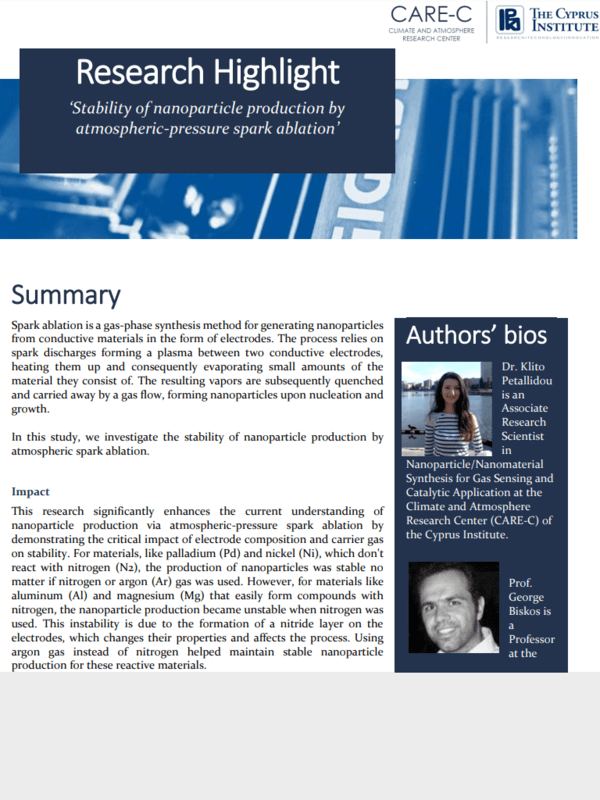
Stability of nanoparticle production by atmospheric-pressure spark ablation
Spark ablation is a gas-phase synthesis method for generating nanoparticles from conductive materials in the form of electrodes. The process relies on spark discharges forming a plasma between two conductive electrodes, heating them up and consequently evaporating small amounts of the material they consist of. The resulting vapors are subsequently quenched and carried away by a gas flow, forming nanoparticles upon nucleation and growth.
In this study, we investigate the stability of nanoparticle production by atmospheric spark ablation.



